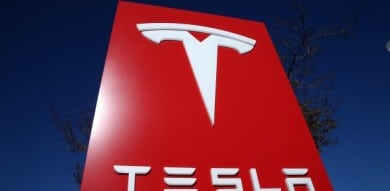
Tesla Motors CEO, Elon Musk, has decided to build a 500,000 unit per year battery factory (Gigafactory) in Sparks, Nevada. This facility, desgned to be as large as nearly 200 football fields, will employ tens of thousands and contribute billions of dollars per year to the local economy. Destined to come online in 2017, the Gigafactory’s goal is to provide mass-produced batteries for a variety of carmakers, not just Tesla, in order to bring down the cost of plug-in electric vehicles, thereby providing electric vehicle access to people for whom the Tesla is too pricey.
Musk cited a “business friendly environment” as a significant factor in his decision to locate the facility in Nevada. Tesla is headquartered in Palo Alto, California. Despite the Palo Alto headquarters, California has lost out to Nevada in a quest to lure Tesla, even with a package of incentives offered to the car manufacturer, including an offer by Governor Brown to waive California environmental regulations.
The 40+-year-old California Environmental Quality Act (CEQA), signed into law by Governor Ronald Reagan, mandates state and local government review of development projects. A proposal to waive CEQA for the Tesla project was met with scorn by environmental activists. Many worried that applying different rules to different corporate citizens might send the wrong message.
Nonetheless, Teslaʼs business has a decidedly environmentally friendly component to it. The electric autos the plant seeks to power, boast lower carbon emissions and reduce the impact of oil exploration and refinement. The pass on CEQA was posited by the state as an effective way to balance big-picture environmental interests. Spurning California, Tesla Motor’s move to Nevada raises several issues. Looking beyond the disappointment of some over the decision to choose another suitor over the golden state, this situation may simply be the tip of an iceberg.
Should environmental regulations be waived or lessened for purportedly eco-friendly businesses? And if so, how will the state get past the Constitutional hurdle of “equal protection” to do so? Is the government’s role to police sustainability? Could the free-market system better address these issues? Certainly, in a less regulated California, the Tesla factory would have sprung up without the burden of CEQA and government over-regulation, thereby creating green jobs & green transportation. In this scenario the free market would have created environmental sustainability without the government “policing” sustainability at all. As ground breaks on the Gigafactory, one is left to ponder an important question: are environmental laws on the books from decades ago now hampering the fast pace of change that human ingenuity is engendering?
The Los Angeles and Sacramento land use lawyers and environmental regulation attorneys at Kassouni Law have extensive experience representing clients when the government over-regulates business and property. If you have a similar legal matter you would like assessed by our legal team, call the firm at 877-770-7379.

